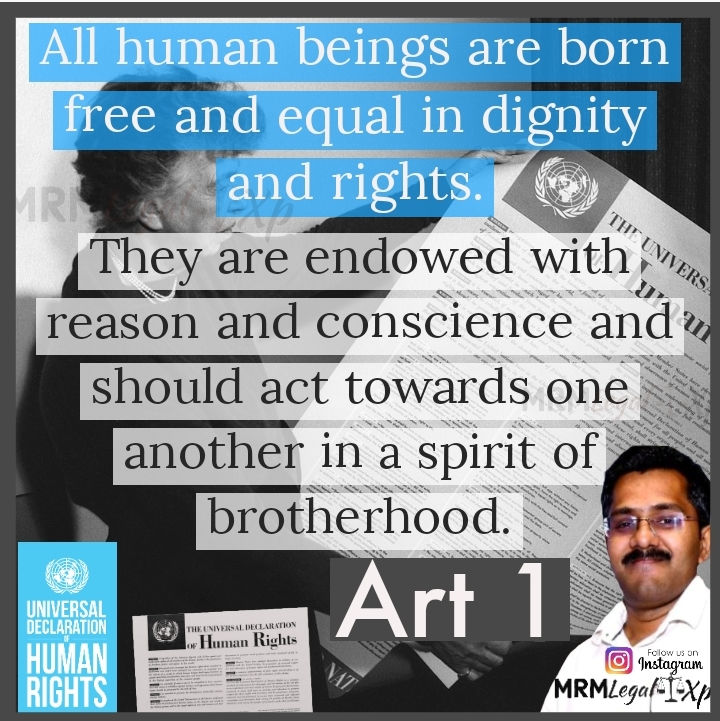Article 1 of the UDHR: The Foundation of Equality and Human Dignity
- M.R Mishra

- Feb 26, 2025
- 2 min read
When was the last time you thought about human rights? We hear the term all the time, but at its core, human rights begin with one simple truth—we are all born free and equal. That’s exactly what Article 1 of the Universal Declaration of Human Rights (UDHR) states:
"All human beings are born free and equal in dignity and rights. They are endowed with reason and conscience and should act towards one another in a spirit of brotherhood."
Sounds simple, right? But in reality, ensuring freedom and equality for everyone is an ongoing challenge.
At its heart, this article is a declaration that no one is born superior to another—not because of their race, gender, nationality, or social status. It tells us that we all have inherent dignity and deserve respect simply because we are human.
But it goes beyond just rights—it also calls on us to treat each other with a spirit of brotherhood. In today’s world, where division, discrimination, and conflict still exist, this message is more important than ever.
Even though the UDHR was adopted in 1948, Article 1 is still relevant in so many ways:
Fighting Discrimination: Whether it's racism, sexism, or any other form of bias, recognizing equality is the first step toward ending injustice.
Empowering Movements: From gender equality to LGBTQ+ rights, Article 1 fuels activism that demands fairness for all.
Shaping Laws and Policies: Governments around the world use this principle to create laws that protect human dignity and freedoms.
The spirit of Article 1 isn’t just for governments or big organizations—it’s for all of us. Small actions, like standing up against discrimination, respecting others’ perspectives, and promoting kindness, help bring this principle to life.

So, the next time you hear about human rights, remember that it all starts with a simple yet powerful idea: we are all born free and equal—and it’s up to us to make sure the world reflects that.







Comments